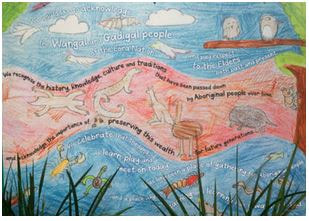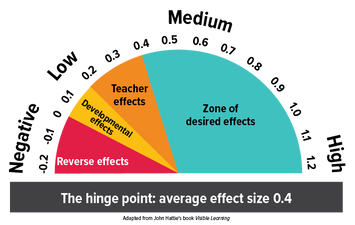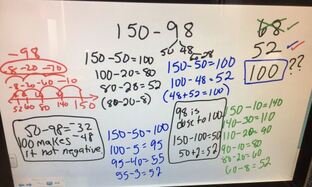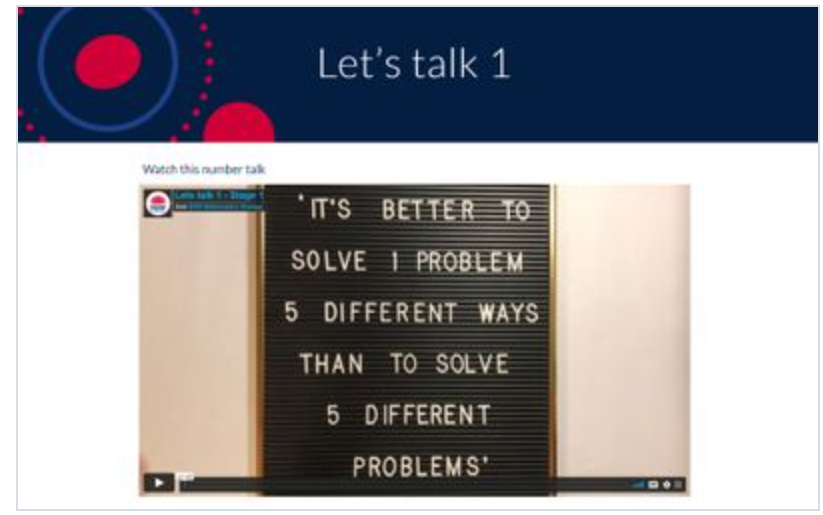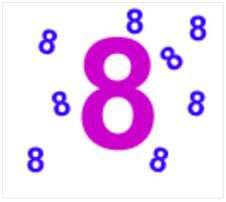Learning From Home - Number Talks
Current Educational Research and Thinking
John Hattie's meta-analysis of educational research found that effective classroom discussion had an effect size of 0.82. This equates to approximately 2 years of progress for each year of learning.
Number talks also use the high impact teaching strategies of questioning, metacognition and worked examples.
'Questioning is a powerful tool and effective teachers regularly use it for a range of purposes. It engages students, stimulates interest and curiosity in the learning, and makes links to students’ lives.
Questioning opens up opportunities for students to discuss, argue, and express opinions and alternative points of view.
Effective questioning yields immediate feedback on student understanding, supports informal and formative assessment, and captures feedback on effectiveness of teaching strategies.'
DoE, 2020
Questioning opens up opportunities for students to discuss, argue, and express opinions and alternative points of view.
Effective questioning yields immediate feedback on student understanding, supports informal and formative assessment, and captures feedback on effectiveness of teaching strategies.'
DoE, 2020
Number Talks
Number talks are designed to provide students with short, regular opportunities to develop efficient number sense and mathematical reasoning, to visualise problem solving, and to explain their thinking (Parrish & Dominick, 2016).
Read the blog post - 'Building number sense through number talks'
Breakout Rooms #1
In your breakout rooms, discuss your experiences with number talks during face to face teaching and learning, or during learning from home.
What do number talks in your classroom look like?
How have number talks supported student learning in maths?
What makes a successful number talk?
In your breakout rooms, discuss your experiences with number talks during face to face teaching and learning, or during learning from home.
What do number talks in your classroom look like?
How have number talks supported student learning in maths?
What makes a successful number talk?
Learning from Home Number Talks
Explore the number talk Seesaw activities that have been used during learning from home this term.
Explore the number talk Seesaw activities that have been used during learning from home this term.
Breakout Rooms #2
In stage teams, discuss the next steps for number talks for the remaining learning from home period, and for when students return.
Additional Resources
Number Talks Build Numerical Reasoning' by Sherry Parish
Meaningful Maths Moments - Number Talks
Talk Moves - DoE
YouCubed, ‘Number Talk #3’
Math Perspectives ‘Number Talks’ (2007)
NCTM ‘Foster Fact Fluency with Number Talks String Discussions’ in Teaching Children Mathematics, vol 25, no.2, October 2018
Meaningful Maths Moments - Number Talks
Talk Moves - DoE
YouCubed, ‘Number Talk #3’
Math Perspectives ‘Number Talks’ (2007)
NCTM ‘Foster Fact Fluency with Number Talks String Discussions’ in Teaching Children Mathematics, vol 25, no.2, October 2018
|
|
|
